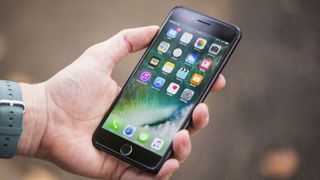Do we really need a new iPhone every year?
Yearly upgrade cycle doesn't bring great value to the customer

I have an iPhone. It's not 7 Plus, 7, or not even a 6S. It is an iPhone 6, and despite whatever 'revolutionary' device Apple may announce today, I have no intentions of upgrading as it has been working perfectly fine.
But that won't be the case with many iPhone users, with most of them wanting to upgrade to the new shiny iPhones, 7S, 8 or whatever it may be called. Sadly, in a country like India, where there are no carrier subsidies, only a very small affluent class will be able to upgrade their iPhones every year.
However, the important question to ask here is, do we need to upgrade our iPhones every year? Do we even need a new iPhone launching every year?
The best way to explain Apple's aggressive yearly upgrade cycle is through the concept called planned obsolescence, "a policy of planning or designing a product with a limited useful life, so it will become obsolete, that is, unfashionable or no longer functional after a certain period of time".
The idea of planned obsolescence is neither new nor invented by Apple. In fact, it existed since the great depression, began with Bernard London's 1932 essay titled 'Ending the Depression Through Planned Obsolescence'. London's vision was that the government impose a legal obsolescence on consumer articles, to stimulate and perpetuate consumption.
Even though the idea of planned obsolescence seemed effective during the Great Depression, in the decades the that followed it became a very unpopular norm that Volkswagen's ads pitched,"we do not believe in planned obsolescence, we don't change a car for the sake of change".
To understand Apple's strategy and our own desire for upgrading to the latest and greatest, and the cost that comes with it, you don't have to analyze every earning call or shareholder meetings by Apple. Rather the answer lies with cultural critic Vance Packard's 1960 work The Waste Maker, an expose of "the systematic attempt of business to make us wasteful, debt-ridden, permanently discontented individuals."
Get daily insight, inspiration and deals in your inbox
Get the hottest deals available in your inbox plus news, reviews, opinion, analysis and more from the TechRadar team.
Packard in his book categorized planned obsolescence into two: obsolescence of desirability and obsolescence of function. "Obsolescence of desirability" or "psychological obsolescence" is the manufacturer's ' effort to wear out a product in the owner's mind. This is exactly what Apple and all other smartphone manufacturers have been attempting, as the progress of technology slows down. And they accomplish this with slight changes in design, made essentially for the sake of change.
According to industrial designer George Nelson" Design... is an attempt to make a contribution to change. When no contribution is made or can be made, the only process available for giving the illusion of change is 'styling!'"
What this strategy provides a manufacturer, such as Apple, is helping them generate long-term sales volume by reducing the time between repeat purchases, or upgrade cycle, as we call it. Vance Packard points that psychological obsolescence wastes resources and doesn't bring great value to the customer.
Some may claim, this small upgrade cycles will drive technological advancement. However, may I ask what was this 'technological advancement' an iPhone 7 had that an iPhone 6S didn't? Losing headphone jack, may be?
The claim that planned obsolescence drive rapid innovation is evidently baseless. In his book Superintelligence: Paths, Dangers, Strategies, philosopher Nick Bostrom states that the technology the masses will use in next 5 years is already developed and has been using in smaller scale already.
The ugly truth here is that technological improvements are not introduced even though they could be, as we have been seeing every year, as they postponed them to feed the upgrade cycle.
It is an elementary knowledge that continuously replacing, rather than repairing, products create more waste, pollution, uses more natural resources. Sadly, any strategy towards repairability was met often with very little enthusiasm, as with the case of Dutch made Fairphone and Google's abandoned Aura modular phone project.
In few months, my iPhone's battery will start to falter, and the forced iOS upgrade will definitely slow it down, as it doesn't have the hardware capability to handle it. And with so much money, content, and data invested in Apple ecosystem, like everyone else, I will be forced to upgrade to the new shiny iPhone Apple will launch today.
Jibu Elias is the lead AI researcher at NASSCOM, lending his wide knowledge and keen insight into artificial intelligence in currently working towards building a unified AI eco-system backed by the Govt. of India. Coming from years of experience in covering emerging technologies, Jibu has a knack for putting seemingly unrelated things in the context of AI with a focus on ethical and legal implications of AI.

